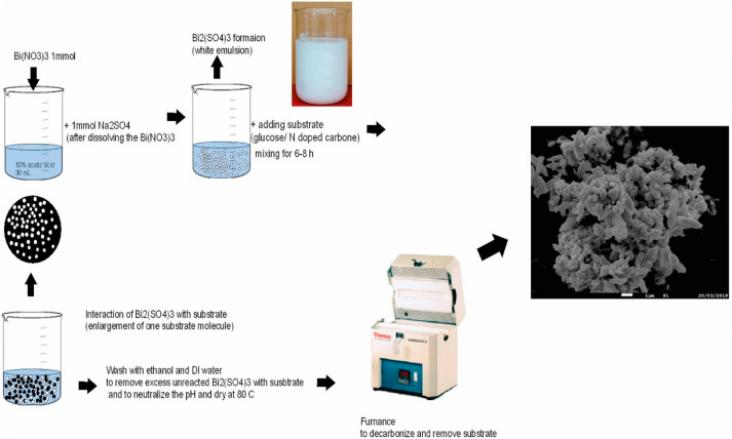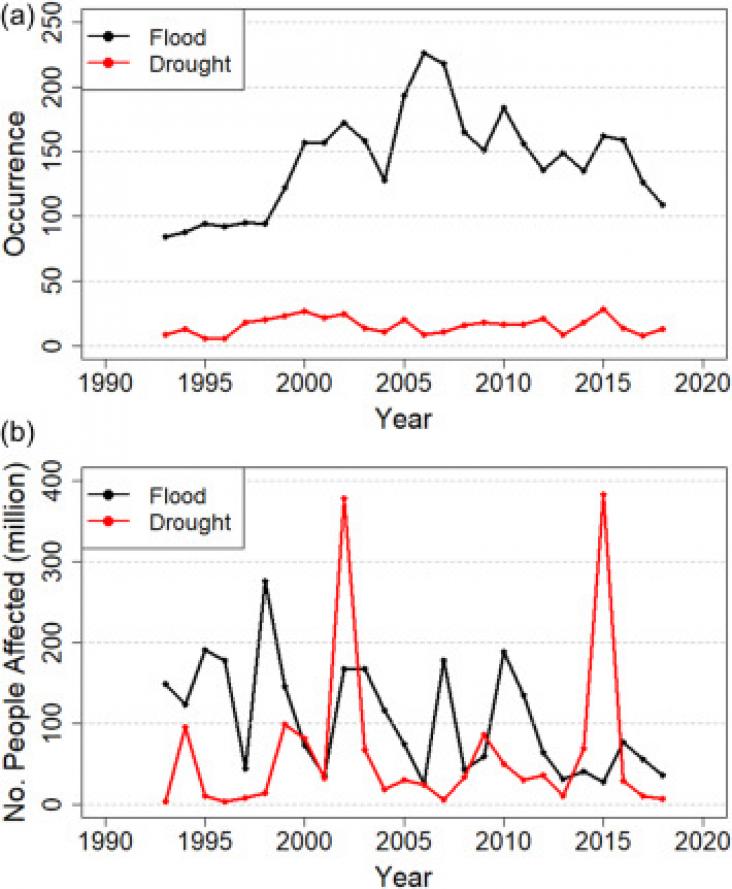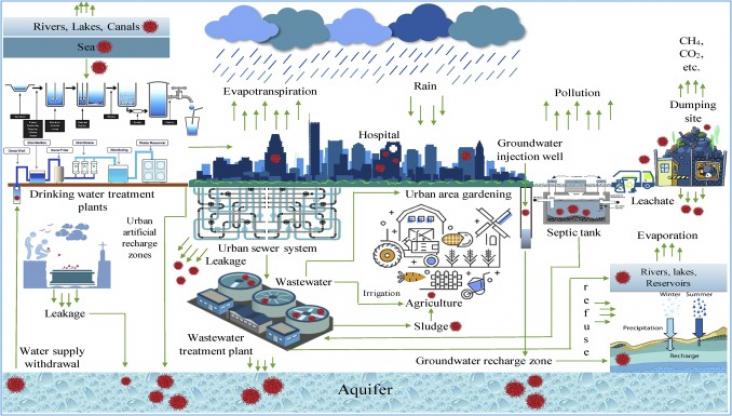
Iodide and bromide ions in surface and ground waters can react with natural organic matters and produce toxic disinfectant by-products. A novel bismuth composite material has been developed for the removal of iodides and bromides at parts per million concentrations.

This paper examines the global trends and main health impacts of these events based on databases and case studies, identifies gaps in the Sustainable Development Goals (SDGs) indicator framework for monitoring health impacts of disasters and suggests recommendations to address these gaps.

Increased concern has recently emerged pertaining to the occurrence of severe acute respiratory syndrome coronavirus 2 (SARS-CoV-2) in aquatic environment during the current coronavirus disease 2019 (
Technology can be used to target hotspots of marine plastic pollution. The Inventory is a tool to identify plastic pollution prevention and cleanup technologies.
Deterioration of water quality due to economic development, climate change and other factors has become a challenge to human beings and the ecosystem.
Cities are wrestling with the practical challenges of transitioning urban water services to become water sensitive; capable of enhancing liveability, sustainability, resilience and productivity in the

Urbanisation is increasing in many countries, leading to the establishment of 33 megacities, representing huge water demand which is increasingly difficult to supply, exemplified by the recently av
Data in 2016 and 2017 has shown that most of Malaysia's river water quality was in Water Quality Index Class II and Class III.
This review goal is to reflect on the challenges and prospects for water quality in the face of the pandemic caused by the new SARS-CoV-2 coronavirus (COVID-19).

